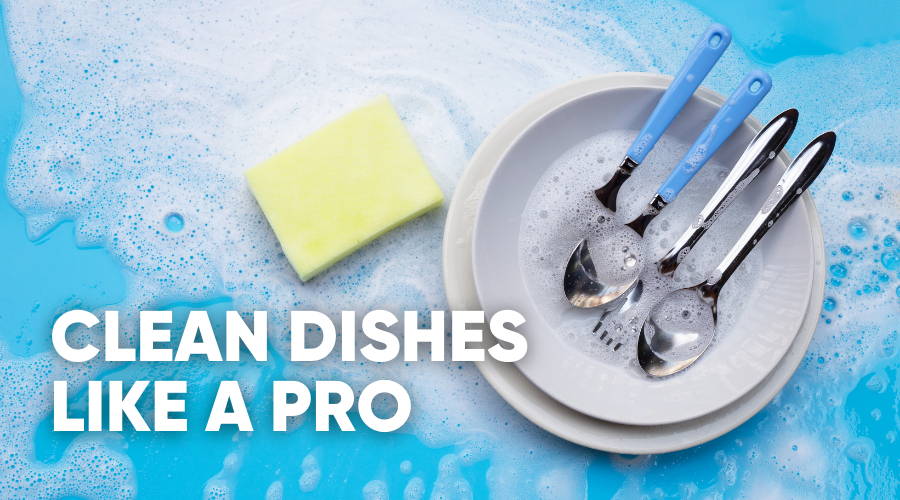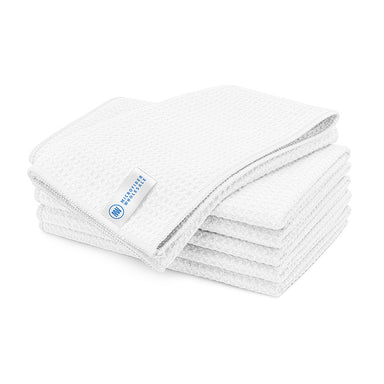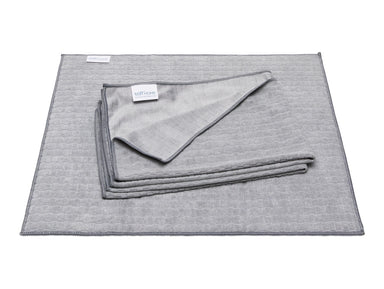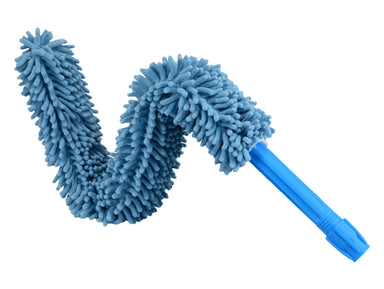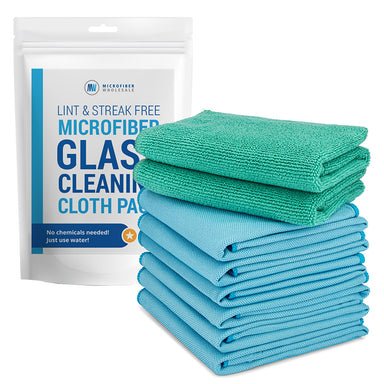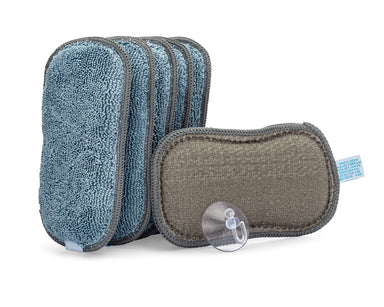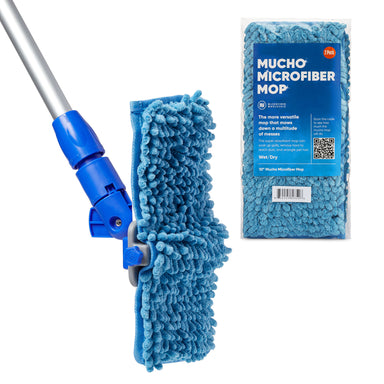Whether it's your daily duties, or the task of clean-up after throwing a large dinner party, doing dishes an unavoidable and cumbersome chore. Not to mention that feeling of dread once all the guests have gone on their way, and you’re left to deal with the mountain of dishes.
No need to worry, though. We’ve put together a quick read on how to get through those utensils faster than you can say “pro dishwasher.” Okay, not that fast. But, you’ll learn:
-
-
-
The system professional dishwashers use to clean dishes during peak times
-
How to escape the smelly, moldy sponge using our premium microfiber dish cloth and scrubbing sponge
- Do you own a dishwasher? Discover tips and tricks for making the most out of it, such as why rinsing dishes beforehand wastes time
-
-
“My dishwasher was broken and I bought these while buying the glass cloths. They’re so good. I don't mind washing the dishes at all. Very little soap is needed and I didn't have to use any cleanser on the pots.” - Diana Sander, United States








